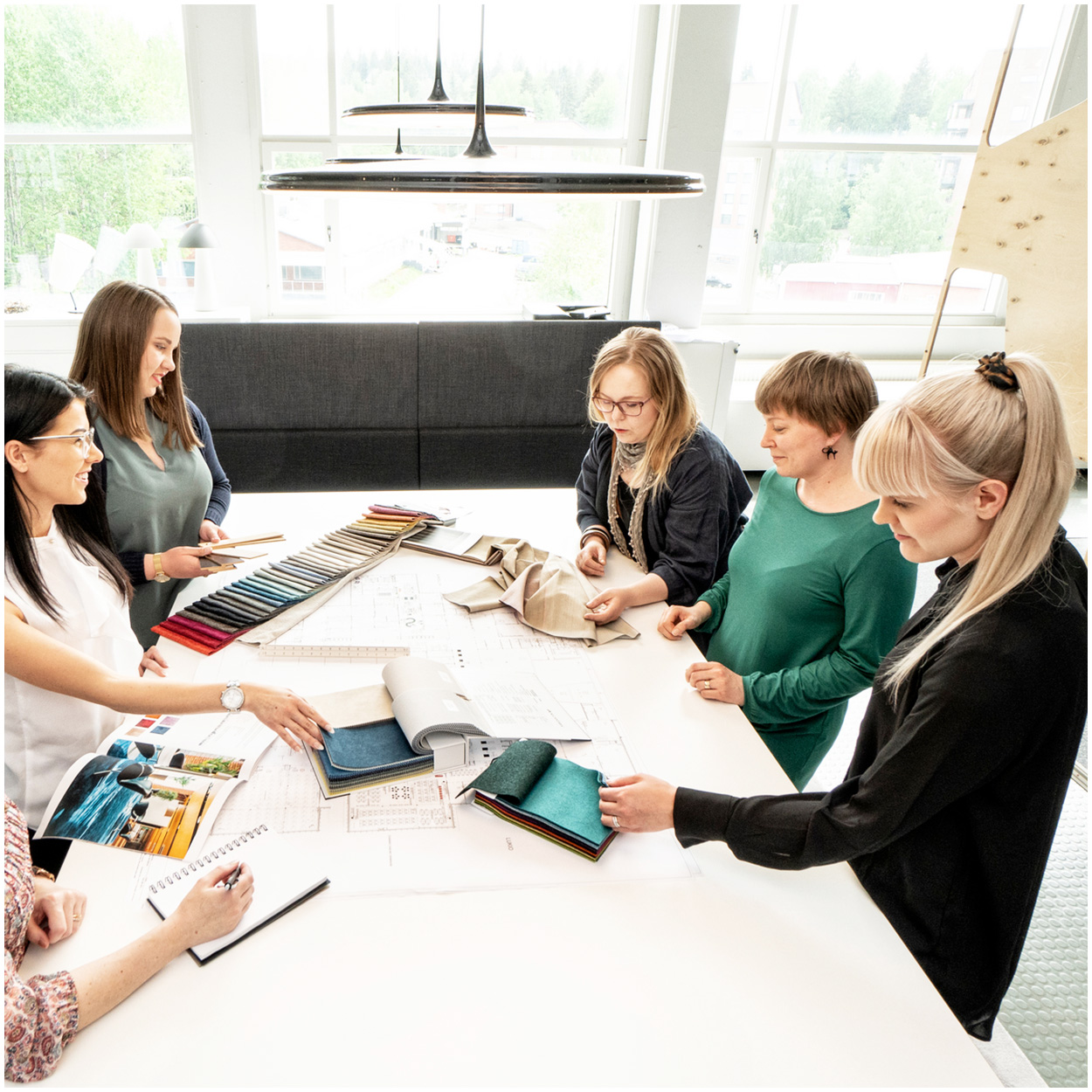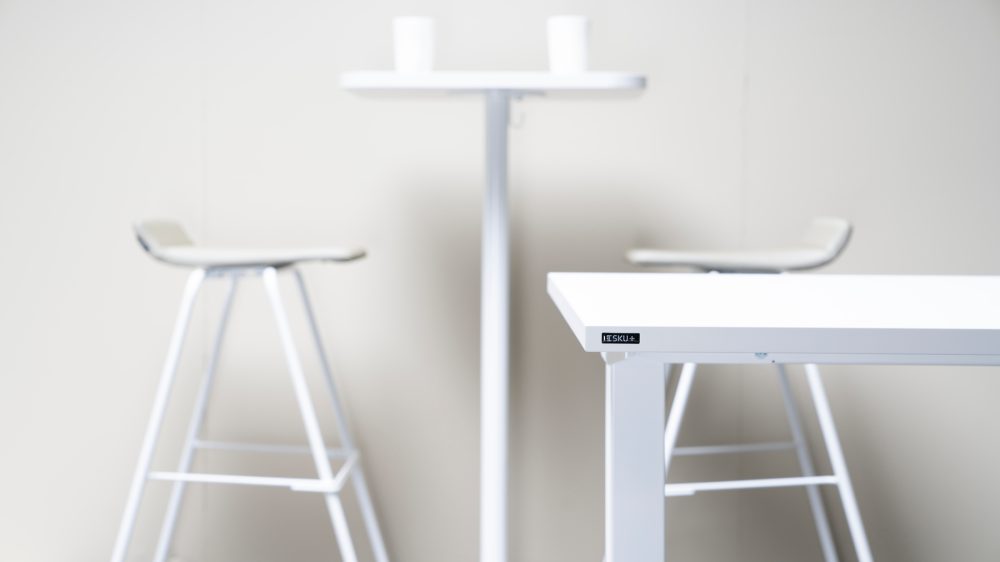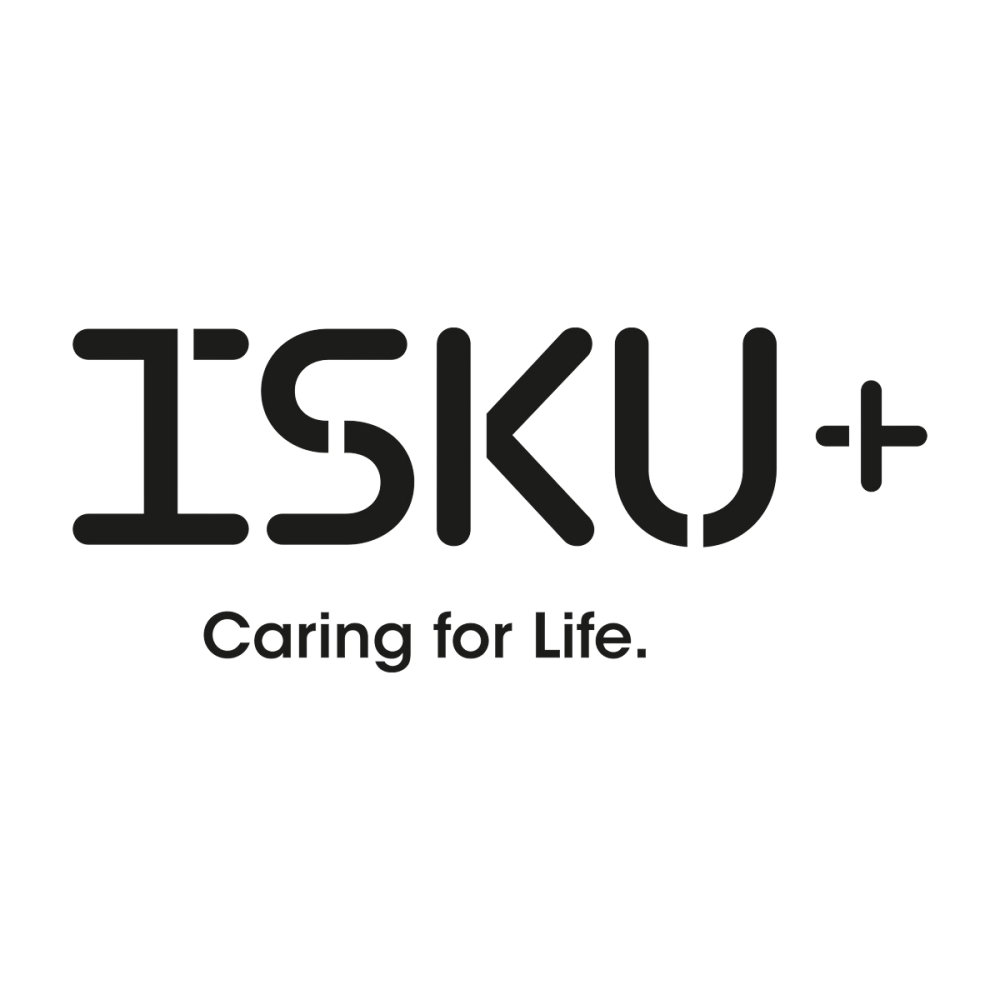When microbes matter, the material makes the difference.
Need any assistance? Get in touch with your inquiry!
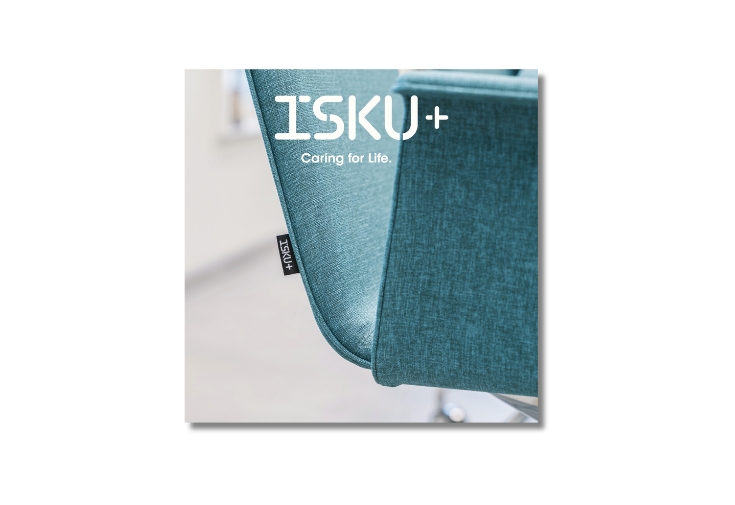
Explore proven antimicrobial solutions – Download your e-book copy
The proven and permanent antimicrobial feature helps to prevent the growth of microbes such as bacteria and mould, on touch surfaces. The technology on antimicrobial ISKU+ surfaces functions actively 24/7 affecting microbes by causing damage to their DNA and preventing them from multiplying. This prevents microbes from growing on protected touch surfaces.
Clinical research has proved the impact of ISKU+ antimicrobial technologies via reduced infection rates in different environments. ISKU has been studying the use of antimicrobial technologies in its research and product development projects since 2013 being the first furniture manufacturer in the world to manufacture entire antimicrobial furniture ranges.
A touch of silver keeps the doctor away
Mankind has been using antimicrobial materials for thousands of years. Among the oldest and best-known antimicrobial materials is the inherently antimicrobial silver that ISKU also utilizes in its antimicrobial solutions. Silver is still used in the disinfection of drinking water even in space, as the technology is used, for example, in NASA’s drinking water systems.
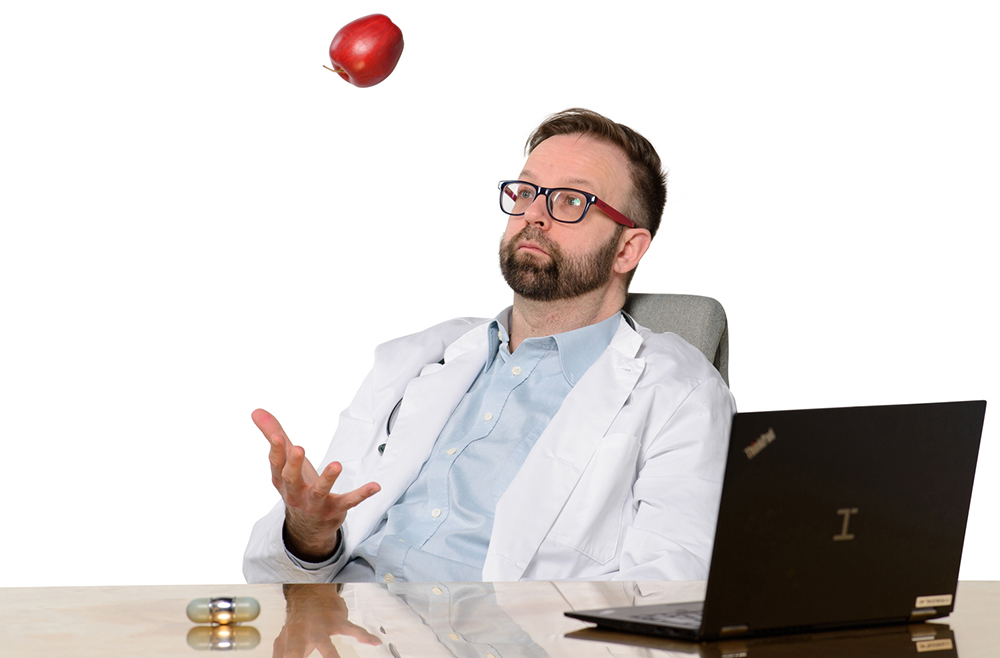
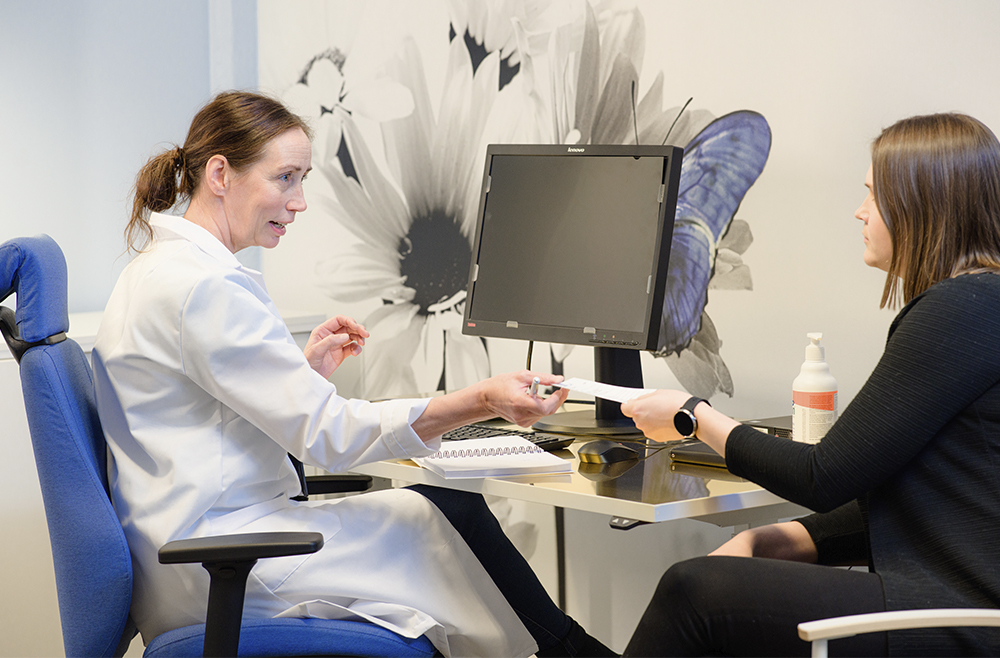
Health to workplaces – antimicrobial surfaces reduce short-term absences by up to 50%
Especially at workplaces all measures to reduce sick leaves and related costs are warmly welcomed by both employers and employees. According to OECD statistics, there are on average a bit more than ten working days missed annually per employee due to illness. This creates global friction for productivity. Overall, ISKU+ antimicrobial technologies can reduce microbes up to 99.99% making it very efficient in fighting infections.
Caring for Life.
ISKU+ furniture collection is the world’s first antimicrobial furniture collection that contributes to a cleaner environment. With hygienic and comfortable solutions, we contribute to the safety and well-being of our customers.
The origin of the concept comes from hospital environments, but clinical trials have shown the impact outside the hospital environments as well. Besides hospitals, ISKU+ antimicrobial contact surfaces add value, especially in work environments, schools and other interiors gathering multiple users and encounters within a day. Read more in the Case study: Antimicrobial vs. Non-antimicrobial Class Room.
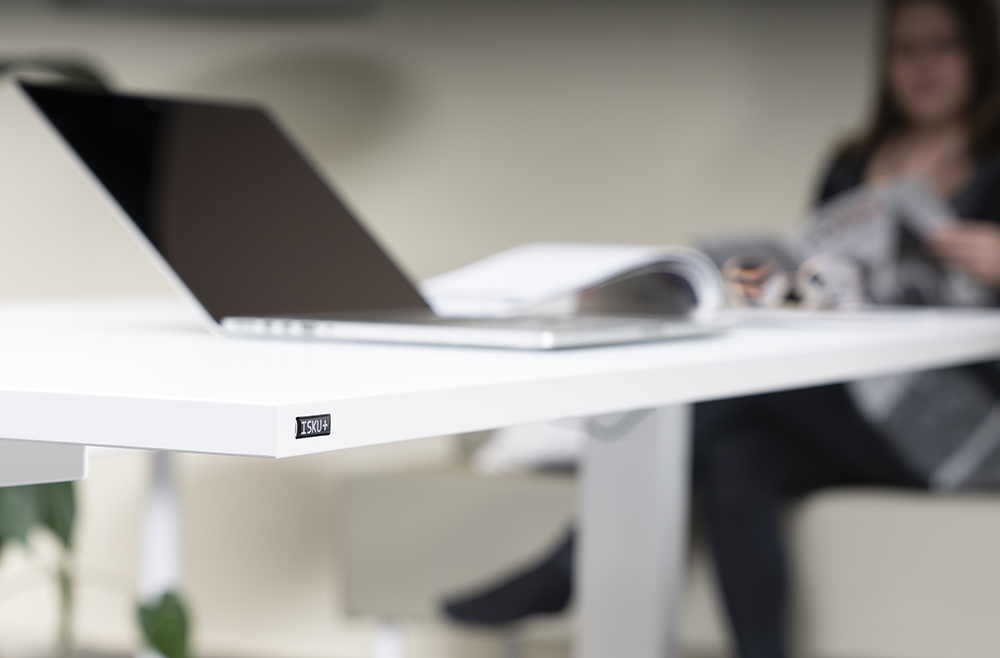

Key benefits
Superior Offering. ISKU+ options are available for the whole collection of ISKU’s standard products.
Permanent efficacy. Antimicrobial efficacy doesn’t decay over time. It works tirelessly for the whole technical lifetime of furniture being protected against wear and tear and cleaning.*
Proven and research-based. The antimicrobial technologies have been tested based on ISO 22196. The efficacy concerns certain viruses, a broad spectrum of various bacteria (including antibiotic-resistant strains), mould, fungi, algae, and yeast.
Environmental friendly and tested to be safe. ISKU+ has been tested to be safe and environment-friendly.
*extreme rubbing or use of industrial chemicals not meant for conventional cleaning e.g. acetone might affect the antimicrobial features of antimicrobial fabrics.
ISKU+ fights contagion
Sneezing, coughing, sniffing and nausea – you can easily notice when the flu season and microbes have arrived at the workplace or school. Intensified handwashing and cleaning help in preventing the spread of infections, but furniture can also play a major role in this.
ISKU+ antimicrobial furniture is the same and manufactured with the same tested materials as other ISKU furniture, to which the permanent antimicrobial feature has been added. Explore ISKU’s antimicrobial solutions in an Architonic article – Read more

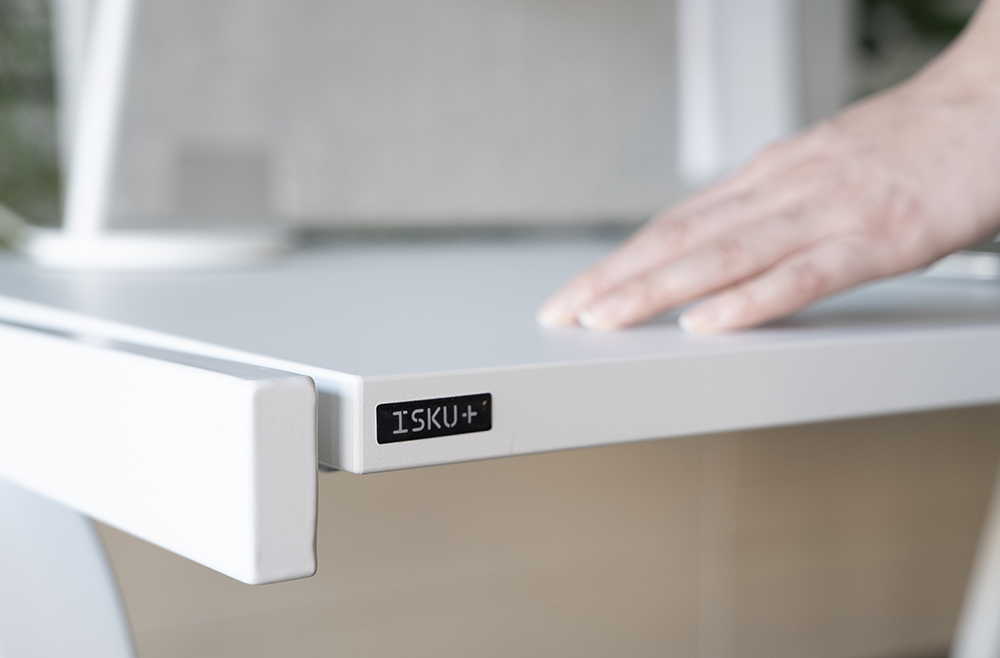
Stop working with 10 million bacteria
Did you know that the average desktop collects around 10 million bacteria on its surface? This is 100 times more than a kitchen table and 400 times more than a toilet seat. The COVID-19 pandemic has made us ever more aware of the power of microbes and the need to find new solutions to stay safe in shared spaces.

